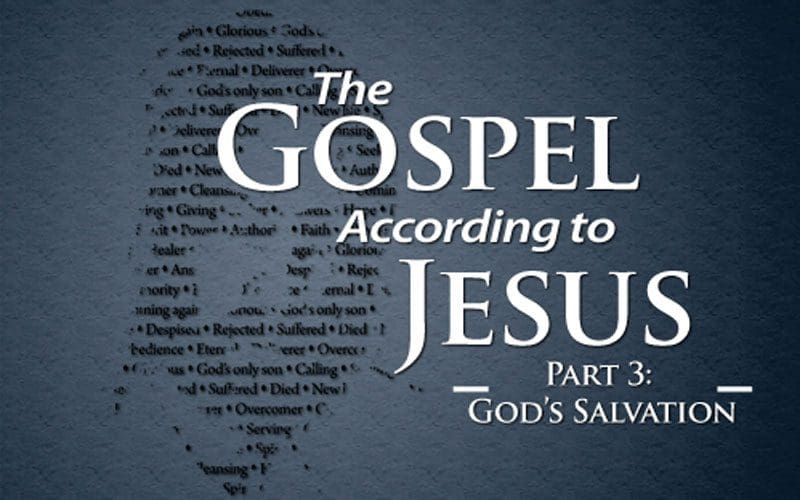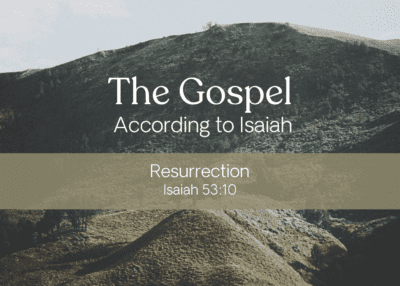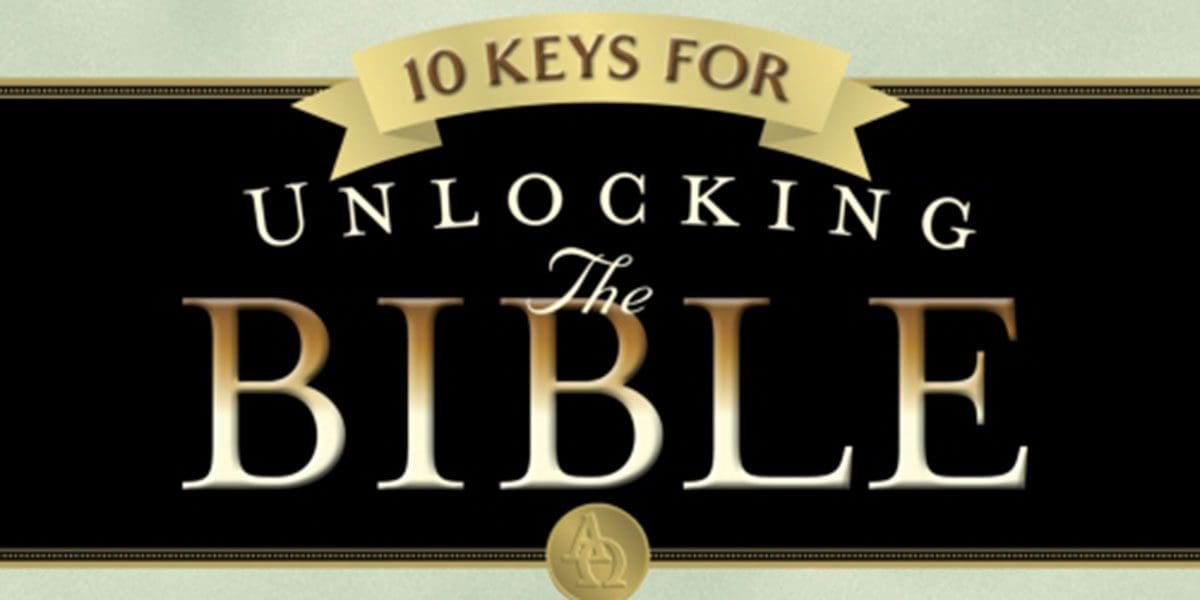And at the ninth hour Jesus cried out in a loud voice, ‘Eloi, Eloi, lama sabachthani?’—which means, ‘My God, my God, why have you forsaken me?’ Mark 15:34 (NIV)
The New Testament tells us about the death of Jesus in two ways: God has given us both description and explanation. And it’s important to hold them together.
Description: What happened…
The Gospels describe what happened. Mark gives us an eyewitness account. If you had been there, here is what you would have seen: The soldiers dividing Jesus clothing by lots (v24). If you had walked past that day, you would have seen the written notice over Jesus head that said: “The King of the Jews” (v26), and the two robbers crucified with Him—one on either side (v27).
If you had been there, here is what you would have heard: People shouting insults at Jesus as they walked past the cross (v29). You would have experienced the strange darkness that suddenly came over the whole land at noon—the sixth hour (v33). Three hours later, you would have heard Jesus cry out with a loud voice ‘My God, my God, why have you forsaken me’ (v34). Then, you would have heard another loud cry, as Jesus took his last breath and died (v37).
That’s what happened. This is what the people who were there at the time heard and saw. It has the hallmarks of an eyewitness account. But what does it mean? What does this have to do with us today? Alongside description, the Bible gives us an explanation of the cross.
Description: What God was doing…
The Bible not only reports what was happening at the cross, but it also reveals what God was doing at the cross. God tells us what the cross means in many places throughout the Bible. Here are seven examples:
1 – “Christ died for our sins according to the Scriptures” (1 Corinthians 15:3)
Here’s something revealed by God. If you had walked past Calvary on that afternoon and seen Jesus on the cross, you would not have known that He was dying for our sins. But this is what God tells us in the Scriptures.
2 – “He himself bore our sins in his body on the tree” (1 Peter 2:24)
Our sins were transferred to Jesus. He bore them. They were imputed to Him—counted as His. The Old Testament helps us to understand this. On the Day of Atonement, the high priest laid his hands on a goat and confessed the sins of Israel.
God gave this day to the ancients to prepare them for what was to come. God said the priest was to ‘put the sins on the goat’s head,’ and then the goat was to be taken outside the camp (Leviticus 16:21). Guilt would be transferred and taken away. This is precisely what happened when Jesus died. He bore our sins.
3 – “God made him who had no sin to be sin for us, so that in him we might become the righteousness of God” (2 Corinthians 5:21)
Notice that God is doing this. God himself is active in His Son’s death on the cross. God is taking the initiative. “God made Him to be sin for us.”
4 – “The Lord has laid on Him the iniquity of us all” (Isaiah 53:6)
Again God is taking the initiative. What is He doing? He’s laying on Him the iniquity of us all. He’s moving guilt. And when Christ bears our sins, He must bear our punishment. He must stand under the justice and judgment of God on our behalf.
5 – “He was pierced for our transgressions, he was crushed for our iniquities; the punishment that brought us peace was upon him” (Isaiah 53:5)
Isaiah is speaking prophetically about Jesus Christ. He explains that on the cross Jesus endured the punishment that belonged to us. By this enduring of our punishment, He brought us peace with God. That’s why our title today is “Jesus Suffered Under The Judgment Of God.” The Bible makes it clear that this is at the heart of what was happening on the cross.
6 – “The Son of Man did not come to be served, but to serve and to give His life as a ransom for many” (Mark 10:45)
The ransom meant paying a price. In His death, Jesus paid the price to set people free. Free from what? Free from the judgment of God that was coming to us on account of our sins.
7 – “God presented him as a sacrifice of atonement, through faith in his blood” (Romans 3:25)
In the Old Testament, God provided a system of sacrifices that were offered by the priest on behalf of the people. The sacrificed animal died instead of the people. The whole point of this was to help us understand what was happening in Jesus’ death.
“God presented Him as a sacrifice of atonement.” Notice how this sacrifice becomes effective for you: “Through faith in His blood.”
God has given us a description of Christ’s death. And He has revealed the explanation: Jesus bore our sins. He took our punishment, died our death, and became the sacrifice for us on the cross. He suffered under the judgment of God. He endured all the dimensions of hell on the cross. He did this for us as our Sin-bearer, our Substitute, our Sacrifice, and our Savior.
The Meaning of the Cross in Mark’s Gospel
You need to know that there are a growing number of teachers in the church today who deny these most precious truths. These folks think that it is unworthy to speak about God’s wrath or His judgment. If you don’t believe that there is any wrath or judgment for sin then there is no reason to think that Jesus endured these things for us on the cross.
I want you to see that the substitutionary atonement—that is, Christ bearing our sin, taking our place under the judgment of God, offering himself as a sacrifice—is clearly taught in the Bible and that it is at the center of His glorious achievement for us on the cross.
“Ok,” you say, “I can see this in the Bible, but where do we find this in the Gospels?” Is there any evidence of the substitutionary atonement in Mark 15? Yes, there is. And that is what I want us to see today.
If you’ve ever read a detective novel, or watched a murder mystery then you know that they always provide clues along the way that point you to what’s really going on. These clues are meant to help you piece together an explanation of what happened.
Sometimes we miss the significance of what is happening. But if you know the explanation and then watch the story again, you will pick up on clues that you completely missed before.
That’s how it is with the story of the cross. You can read this story without seeing anything more than the suffering of an innocent man. But once you know the Bible’s explanation, you begin to see things that you would have completely missed before. As we look again at the story of Christ’s death, we will see the glory of what Jesus accomplished as He suffered under the judgment of God.
Conscious suffering
They brought Jesus to the place called Golgotha (which means the place of the Skull). Then they offered him wine mixed with myrrh, but he did not take it. (v22-23)
The wine mixed with myrrh was a mild sedative. Crucifixion was so barbaric, and the pain involved so horrific, that according to tradition, some relief was offered to the victim just before he was nailed to the cross.
We don’t know who offered this drink to Jesus. Most likely it was the women who followed him all the way to the cross. Here is the possibility of at least some limited relief from the agonies Christ is about to endure. Christ had the opportunity of at least some dulling of his consciousness as he faced the ultimate horror of being crucified.
The pain involved in crucifixion is reflected in the English word “ex-cruciating,” describing pain that comes ‘out’ of the ‘cross.’ Any compassionate person would say ‘Drink!’ Take this small opportunity of relief. Let the sedative dull your mind to the nailing, to the searing pain in your body.
Notice what Mark says: “They offered him wine mixed with myrrh, but he did not take it” (v23). Our Lord Jesus was fully conscious throughout His suffering. Christ endured the punishment for our sins. He endured our hell. Hell is a place of conscious torment.
By the way, don’t you think that the thief on the cross was grateful that Christ’s consciousness was not dulled when he cried out to Him for mercy? And Christ’s mind is never dulled to your cries either.
When you know what God was doing at the cross, you can understand why Christ refused the sedative, why He could not allow his consciousness to be dulled.
Jesus came under the curse for us
And they crucified him. (v24)
Why crucifixion? Why did Jesus suffer and die in this way rather than another? Crucifixion was a Roman means of execution. You won’t find anyone being crucified in the Old Testament. Among the Jews, stoning was the prescribed form of capital punishment (Leviticus 24:13ff).
But one Old Testament rite is very significant for understanding what happened when Jesus was crucified. “Anyone who is hung on a tree is under God’s curse” (Deuteronomy 21:23). If capital punishment in the Old Testament was by stoning, then why would anyone be hung on a tree? William Lane explains:
The hanging on a gibbet prescribed for idolaters and blasphemers who had been stoned was not a form of capital punishment, but of humiliation, since it followed death. The public exposure of an executed person branded him as one cursed by God.[1]
A criminal was condemned by the court for execution. And after he was dead, the body was displayed on the gallows. The Jews hung the body of an evil man to a tree after he had been executed. And this was the sign that after having succumbed to the punishment of the law, he was now under the curse of God.
The New Testament also takes up this theme: “Christ redeemed us from the curse of the law by becoming a curse for us, for it is written “Cursed is everyone who is hung on a tree” (Galatians 3:13). When Mark says “And they crucified him” (v24), anyone who knew the Old Testament knew what that meant: He came under the curse of God.
The Jewish practice put the condemned man to death, and then hanged him on a tree. But Jesus was hanged on the tree before his death. He was consciously, publicly, knowingly, under the curse of God. And He did this for us.
Why would Christ come under the curse of God? He was without sin! The Bible gives us the answer: He was bearing our sins. “God made Him who had no sin to be sin for us…” (2 Corinthians 5:21).
Jesus entered the darkness for us
At the sixth hour [midday] darkness came over the whole land until the ninth hour. (Mark 15:33)
A strange shadow fell over the land. At the birth of Jesus, we are told that shepherds were watching their flocks at night when “An angel of the Lord appeared to them, and the glory of the Lord shone around them” (Luke 2:9). When Jesus was born, there was light at midnight. But when Jesus was crucified, there was darkness at noon.
Whenever you come across something unusual in the Bible, it’s a good rule to ask: Where have we seen something like this before? Where have we seen darkness suddenly coming over a whole land in the middle of the day?
This is precisely what happened during the plagues of judgment that God sent on the land of Egypt. Pharaoh had made God’s people his slaves and refused to let them go. So God sent ten plagues, and the last one involved the death of a first-born son.
The plague that preceded this—plague number nine—brought darkness over the whole land: “The Lord said to Moses, ‘Stretch out your hand toward the sky so that darkness will spread over Egypt—darkness that can be felt.’ So Moses stretched out his hand toward the sky, and total darkness covered all Egypt for three days” (Exodus 10:21-22).
The “darkness that can be felt” came to Calvary when Jesus was on the cross. When darkness is over the whole land, it is a sign that the judgment of God is being poured out. That is precisely what is happening here. The judgment of God toward human sin is being poured out, and it is being poured out on Jesus.
The Bible describes hell as a place of darkness: The Apostle Peter talks about false teachers who corrupt the church, and he warns that “blackest darkness is reserved for them” (2 Peter 2:17).
Jesus was forsaken by the Father for us
At the ninth hour Jesus cried out in a loud voice, ‘Eloi, Eloi, lama sabachthani?’—which means, ‘My God, my God, why have you forsaken me?’ (Mark 15:34)
Here we come to the deepest suffering of our Lord Jesus Christ. We will never be able to fully take in what this meant for Jesus. The Father delights in the Son, and the Son delights in the Father.
The love of the Son for the Father and the love of the Father for the Son was their joy before the creation of the world, and will be for all eternity. When Jesus prayed for His disciples, he asked the Father “that they may be one as we are one” (John 17:11). The Father and the Son have always shared one life, one love, one Spirit, one purpose, and one will.
But now the Son becomes the Sin-bearer. The stench of our sin is upon the Son of God, and the Father must turn away from Him. Judgment is poured out on the sinless Lamb of God.
Jesus is under the judgment of God. He is enduring all the dimensions of hell on the cross. This is hell: being under the curse, being plunged into darkness, and being forsaken by the Father. Jesus endured all this consciously for you and for me.
Double Jeopardy
Why is this important for us today? Why does it matter? Jesus endured all this so that you would never know what it is like. He came under the curse, so that you could be redeemed from it. He entered the darkness, so that you would never know what hell is like from the inside. He was forsaken by the Father, so that the Father could say to you “I will never leave you or forsake you” (Deuteronomy 31:6). Jesus suffered under the judgment of God so that ‘in Him,’ you would be saved from the judgment of God.
There’s a film that’s been around for a few years called Double Jeopardy. A man fakes his own death and then frames his wife for his murder. She is convicted, and sentenced to prison.
To her horror, while she is in prison she discovers that her husband is not dead, but very much alive and living with her son and another woman. At this point in her rage, she learns about double jeopardy. The law cannot convict the same person twice for the same crime. Since she has already been convicted for her husband’s murder, this means she can bring him justice with impunity.
Think about the principle of double jeopardy: The law cannot convict the same person twice for the same crime. When you come to Jesus in repentance and faith, you are ‘in Christ.’ That’s how the Bible most frequently refers to Christian people; ‘in Christ.’ God does not view you alone, in isolation. He sees you so identified with his Son as to be inseparable from Him. You are bound up with Him.
Christ died for your sins. If you are ‘in Him,’ no further charge can be brought against you. God cannot condemn you for sins that Christ bore, for that would be double jeopardy. Christ has paid for these sins. The law cannot convict the same person twice for the same crime.
Payment God cannot twice demand,
first from my bleeding Savior’s hand,
and then again from mine.
There’s no double jeopardy with God. And if your response to this is: “Doesn’t this mean I could go and live as I like, commit any sin I want to, and get away with it?” If you’re asking this question right now—good! It means you’ve finally understood the gospel of grace!
Paul spends all of Romans 5 explaining the heart of the cross. Then, right at the beginning of chapter six, he starts with a question: “What shall we say, then? Shall we go on sinning so that grace may increase?” (Romans 6:1). When you understand the gospel, this will be your natural question.
By the way, if you’re asking this question today, you do need an answer. What is it? The answer is “No!” The free grace of the Lord Jesus Christ will not lead you to a life of sin because “If anyone is in Christ, he is a new creation; the old has gone, the new has come” (2 Corinthians 5:17).
When you come to Christ in repentance and faith, He will make you His own. He will give you His Spirit. And His Spirit will make you a new creation and move you in a new direction. He will give you new life.
When you are in Christ you want to please Him. You may fail and foul up many times, you may repeatedly fall short of your goal, but if you are a Christian you love Christ and you see what He has done for you on the cross as supremely valuable. You see that He has poured out His life for you, and now you want to pour out your life for Him, living in a way that brings Him joy and honors His name.
If you are in Christ, and Christ has been crucified for your sins, you cannot be charged, convicted or condemned before the judgment seat of God. This is why Paul says: “There is now no condemnation for those who are in Christ Jesus” (Romans 8:1). There can’t be, because of what Christ accomplished on the cross. Who can bring any charge against those God has justified? (Romans 8:23). No one can. That’s the assurance of the gospel. That’s the freedom and joy of the sons and daughters of God.
If you are not ‘in Christ,’ the charges, convictions and condemnation belonging to your sin remain stored up for you. But you can come to the risen Lord Jesus Christ today. This Jesus was crucified for you. He bore the curse. He entered the darkness, and He was forsaken by God for you. His sacrifice and His blood are sufficient to save you.
You can come to Christ in repentance and in faith today. He will not turn you away. He will welcome you. He will forgive you. He will make you a new person in Christ.
[1] William Lane, Mark, p.562.





